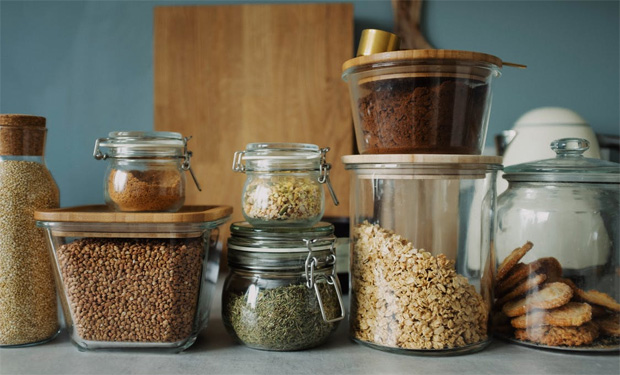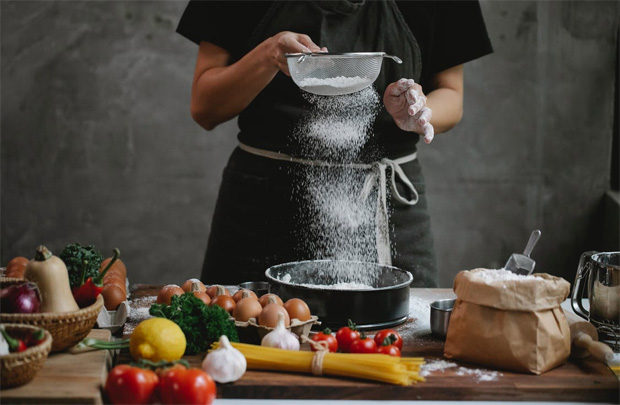6 Organic Food Swaps You Can Do Today

6 Organic Food Swaps You Can Do Today
We all know that to be healthier, we need to eat more fruit and veg and less processed food. But even if you open your fridge to find shelves packed with leafy, lean goodness, your pantry might be a different story.
Pantries and kitchen cupboards are home to those cooking staples we use almost every day. Salt, sugar, snacks, and oil; all of which could be undermining your health, even if you otherwise live on a diet of spinach and oily fish.
Now is the time to thoroughly reorganise your pantry, swapping all unhealthy items with organic alternatives. And here is where you can start.

- White sugar
White sugar may be an effective sweetener, but it is also bad for our health.
If you want an organic alternative, try coconut sugar. It contains nutrients like iron and zinc, as well as antioxidants. Honey and maple syrup are also great natural sweeteners for cooking, with honey being a great way to sweeten tea.
Above all, stay away from artificial sweeteners, which are often as bad for you as white sugar.
- Salt
The other grainy white staple of the kitchen, table salt is highly processed. As it’s not an agricultural product, salt can’t be certified organic, but you can still use the best quality, most natural version in the form of course sea salt.
Sea salt mixed with fresh chopped herbs is a flavourful way to season your food, which will make you wonder why you ever settled for less.

- Refined white flour
Are you beginning to see a pattern? Most white powders found in the kitchen are only white because they have been heavily processed. Bring your baking back to nature by replacing white flour with whole wheat flour.
Nowadays, many other flour alternatives are also available, from protein-packed nut flours to fibre-full brown rice flour. Most can easily be substituted for white flour when baking cakes, bread, and crumbles.
- Wine
We all love a glass of wine now and then, whether with a meal or as an evening relaxer. However, most wines come from grapes grown with chemical fertilizers, fungicides, herbicides, and pesticides.
Organic wines are made without the use of such harmful chemicals, making them much better for the environment. They are also just as delicious as non-organic wines, and some people swear they don’t produce as bad a hangover, but you can be the judge of that.

- Vegetable oil
Unless you’re making the effort to buy organic vegetable oil, chances are it’s made with GMO (genetically modified organism) soybeans or canola. While current research indicates GMOs aren’t significantly less healthy than other crops, there are concerns about their possible links to allergies and cancer, as well as environmental concerns. There has been no long-term research to either back up or assuage these fears, but it’s always wise to be cautious with your health.
So why not opt for the traditional oils instead? Organic olive oil has been used in cooking for thousands of years, while coconut oil is a completely natural plant-based addition to your cooking.
- Sugary snacks
Snacking isn’t shameful. Most of us need a little something to see us through to the next mealtime, but if your pantry is full of chocolate, biscuits, and crisps, the temptation to indulge may become too much, to the detriment of your health, and the health of your family.
Organic snacks like nuts, seeds, fruit, and organic chocolate are delicious and much better for you. They can also be used in cooking or baking, making them so much more than something to munch on.
Making your kitchen more organic won’t happen overnight, but a few key replacements can help you on the way to a healthier, greener lifestyle.
Guest Article.




